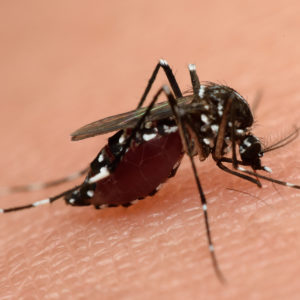For many regions of the United States, this year’s unofficial start of summer has already been marked by record-breaking rainfall, tropical temperatures and an uptick in mosquitos. With these trends, health experts are warning Americans of another potential risk — the spread of Zika virus.
The most common way to contract Zika is through bites from infected mosquitos, but the virus can also be transmitted sexually from male to partner and from a pregnant woman to her fetus. The species of mosquitos that carry the virus thrive in warm environments with as little as a drop of standing water.
To date, no one in the continental United States has contracted Zika through bites from infected mosquitos here at home. However, there are currently more than 2,000 people infected with Zika in U.S. states and territories.
Without smart public health solutions and financial resources to combat Zika, we are likely to see an increase in transmission among Americans during the summer months. In fact, the Centers for Disease Control and Prevention has estimated that states in the southern region could be hardest hit. Yet months after the White House set forth a $1.9 billion plan to address the Zika head on, Congress has yet to approve any emergency funding.
While Congress fails to act, Zika cases continue to rise without the resources to stop it in its tracks.
Most people infected with Zika are asymptomatic. For those that do have symptoms, rash, fever, joint pain, muscle pain and headache are common. And while symptoms only last for about a week and are relatively mild in nature, Zika virus in pregnant women is cause for grave concern.
Scientists have confirmed the link between the Zika virus in pregnant women and a congenital brain condition in their fetuses known as microcephaly. Microcephaly leads to slow brain growth, which can cause developmental disabilities in children. There is currently no treatment or cure available for microcephaly.
The Center for American Progress has estimated that more than 2 million pregnant women in the United States could be at-risk during the summer months and into early fall.
Over the span of a lifetime, the direct costs associated with caring for a child with microcephaly — including costs related to child care, health care and lost wages due time away from work to care for a child with special needs — could exceed hundreds of thousands of dollars for a family. The lifetime cost of care to the government through programs like Medicaid is estimated between $1 million and $10 million for each infant with microcephaly.
Indeed, the long-term effects of Zika could deepen the cycle of poverty for low-income women and families. Being economically disadvantaged also means reduced access to some health services, including reproductive and maternal health care and pediatric care.
While vector control and testing are important aspects in the Zika response, access to reproductive and maternal health care should also be prioritized in plans. Low-income women must be provided with comprehensive counseling and access to the full range of contraceptive methods to prevent unplanned pregnancy if they so choose. Both male and female condoms must also be made available to people who want them.
For pregnant women who test positive for Zika and decide to carry their pregnancies to term, timely quality prenatal and postnatal care is critical. For children born with microcephaly, pediatric care and social supports are vitally needed. Not only will access to these services help ensure support for families navigating care for a child with a disability, it will also support the child with critical developmental care.
In order to fully implement plans to combat Zika, Congress must act swiftly to appropriate adequate emergency funding. While bills have been introduced in the House and Senate, both fall short of the $1.9 billion requested by the Obama administration. Without Congress’s action, state and local public health responders have been slow to scale plans at the community level. In some cases, they have had to offset funds from other programs to support local Zika response efforts.
Frankly, there’s no time to waste if we want to protect the most vulnerable. Dr. Tom Frieden, director of the CDC, recently emphasized the essence of time in a plea to Congress: “Memorial Day weekend heralds the start of mosquito season,” he said. “We have a narrow window of opportunity to scale up Zika prevention measures, and that window is closing.”

